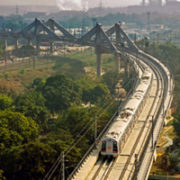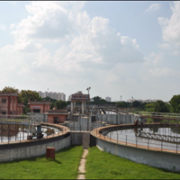Archive | Governance and public sector management RSS feed for this section
Economics, Governance and public sector management
 Economics, Governance and public sector management, Industry and trade, Private sector development
Economics, Governance and public sector management, Industry and trade, Private sector development
 Finance sector development, Governance and public sector management
Finance sector development, Governance and public sector management
 Governance and public sector management, Industry and trade, Information and Communications Technology, Private sector development
Governance and public sector management, Industry and trade, Information and Communications Technology, Private sector development
 Economics, Governance and public sector management, Industry and trade
Economics, Governance and public sector management, Industry and trade
 Governance and public sector management, Transport
Governance and public sector management, Transport
 Governance and public sector management, Transport, Urban development
Governance and public sector management, Transport, Urban development
 Economics, Governance and public sector management
Economics, Governance and public sector management
 Finance sector development, Governance and public sector management, Information and Communications Technology
Finance sector development, Governance and public sector management, Information and Communications Technology
 Agriculture and natural resources, Capacity development, Environment, Governance and public sector management, Health, Water
Agriculture and natural resources, Capacity development, Environment, Governance and public sector management, Health, Water

Challenging times for central banks: Low inflation, monetary policy, and digital currency

The coronavirus disease (COVID-19) outbreak has transformed the global monetary policy landscape. The sharp global economic slowdown caused by the spread of the virus and the various countermeasures embarked on by governments under states of emergency (such as quarantines, policies to restrict mobility, school closures, and restrictions and limitations on business operations) prompted many central banks to implement substantial monetary easing from March 2020 along with massive fiscal stimulus measures. As a result of these measures, a growing number of central banks have faced the effective (or zero) lower bound or approached it in their policy rates.
SMEs in global value chains: Catalysts for dynamic and inclusive economic growth

The world has been witnessing the active construction of global value chains (GVCs) by multinational corporations (MNCs) in recent decades. According to the World Bank (2020), the share of GVC trade in world trade increased rapidly from approximately 40% in 1990 to over 50% in 2007 before declining somewhat after the global financial crisis in 2007–2008. MNCs fragment production processes into various stages and locate them in various countries and places where the particular stages can be conducted most efficiently, or at least cost, in order to achieve an efficient production system.
Systemic power imbalances in responsible investments

The recent surge of interest in environmental, social, and governance (ESG) investments has brought with it closer scrutiny of the way in which ESG factors are evaluated as conditions before an investment can be categorized as such. Environmental factors have been receiving a lion’s share of the attention in these investments, which have been riding on the institutional clout lent unto them by green growth.
The value creation potential of platforms

The rapid success of modern platforms is a testament to their ability to scale efficiently to the needs of many while providing an undeniable and significant advantage over the older methods that had so far dominated value exchanges. Powered by the public Internet and robust local connectivity, digital platforms rose to the challenge of developing newer, more efficient alternatives in their respective focus areas.
Land readjustment in Japan: Beyond the myth of Japanese consensus and harmony

The landscape of Misato City in Japan has changed drastically in the last 35 years. In the 1980s, Shin-Misato Station was the Mushashino marshalling yard for freight services. Most of the land near the station was used for agriculture, but once residential houses increased and more people came to settle in the area the government built a passenger train station.
Thinking beyond the suitability of high-speed railway in India

In India, the project to build the country’s first 500-kilometer high-speed railway (HSR) from Mumbai to Ahmedabad is underway. For comparison, all top 10 economies in the world except the United States have constructed several HSR lines in the past 30 years. The People’s Republic of China (PRC) alone has built nearly 28,000 kilometers of HSR in the past 20 years. Nevertheless, opinion makers in India are expressing contradicting views, questioning whether it is suitable for the country to develop expensive infrastructure such as HSR.
Don’t be derailed by rights-of-way

The disappointing scale-back of California’s showcase high-speed rail system between San Francisco and Anaheim has many experts asking what lessons can be learned. Similar pushbacks have occurred on other continents: witness the popular resistance to construction of a new superstation as part of Stuttgart’s urban renewal, which escalated into violent demonstrations, delays, and stalemates.
Bridging the digital tax divide in Asia

Digitalization has transformed the global economy and had significant impacts on Asia and the Pacific, home to some of the world’s biggest and most advanced e-commerce markets, such as the People’s Republic of China (PRC), Australia, Japan, New Zealand, Singapore, and the Republic of Korea (Asian Development Bank and United Nations ESCAP 2018).
Will Facebook’s Libra scramble the regulatory calculus for crypto assets?

There are currently over 2,000 crypto assets like Bitcoin that can be exchanged for goods and services in many countries anonymously, instantaneously, and at any time. These emerging forms of private sector money, or crypto currencies, provide their own units of account and are based on ledger technology such as blockchain which makes the falsification of transaction data difficult. Unlike cash, transactions using crypto assets are also technically traceable and a positive or negative interest rate can be charged, potentially improving the effectiveness of monetary policy.
Do the socioeconomic spillovers from sewage treatment plants in developing countries justify heavy investment in them?

Decent sanitation for all is crucial for rapidly urbanizing developing countries, such as India. As large volumes of wastewater in developing countries remain untreated, the investments in treatment facilities have not kept pace with the steady increases in population and urbanization and the resulting increases in wastewater volumes.


Search
Subscribe / Connect to Asia Pathways
Subjects
- Accelerating Progress in Gender Equality
- Addressing Remaining Poverty and Reducing Inequality
- Agriculture and natural resources
- Capacity development
- Climate change
- Economics
- Education
- Energy
- Environment
- Finance and Innovation
- Finance sector development
- Gender
- Globalization and Economic Stability
- Governance and public sector management
- Health
- Human Capital Development for Inclusive Growth and Shared Prosperity
- Industry and trade
- Information and Communications Technology
- Infrastructure
- Making Cities More Livable
- Miscellaneous
- Population
- Poverty
- Private sector development
- Regional cooperation and integration
- Sanitation
- Social development and protection
- Strengthening Governance and Institutional Capacity
- Subjects
- Transport
- Uncategorized
- Urban development
- Video Blog
- Water
Recent Posts
- The Promise and Perils of Mother Tongue-Based Education
- From Crisis to Resilience: The Evolution of the Banking Sector in Asia and the Pacific
- Tariffs on the Table: What Could Be Asia’s Next Move?
- Investing in Childcare a Win for Women and the Economy
- Flush and Flourish: Upgraded Toilets Can Transform Lives in Rural Asia




Recent Comments